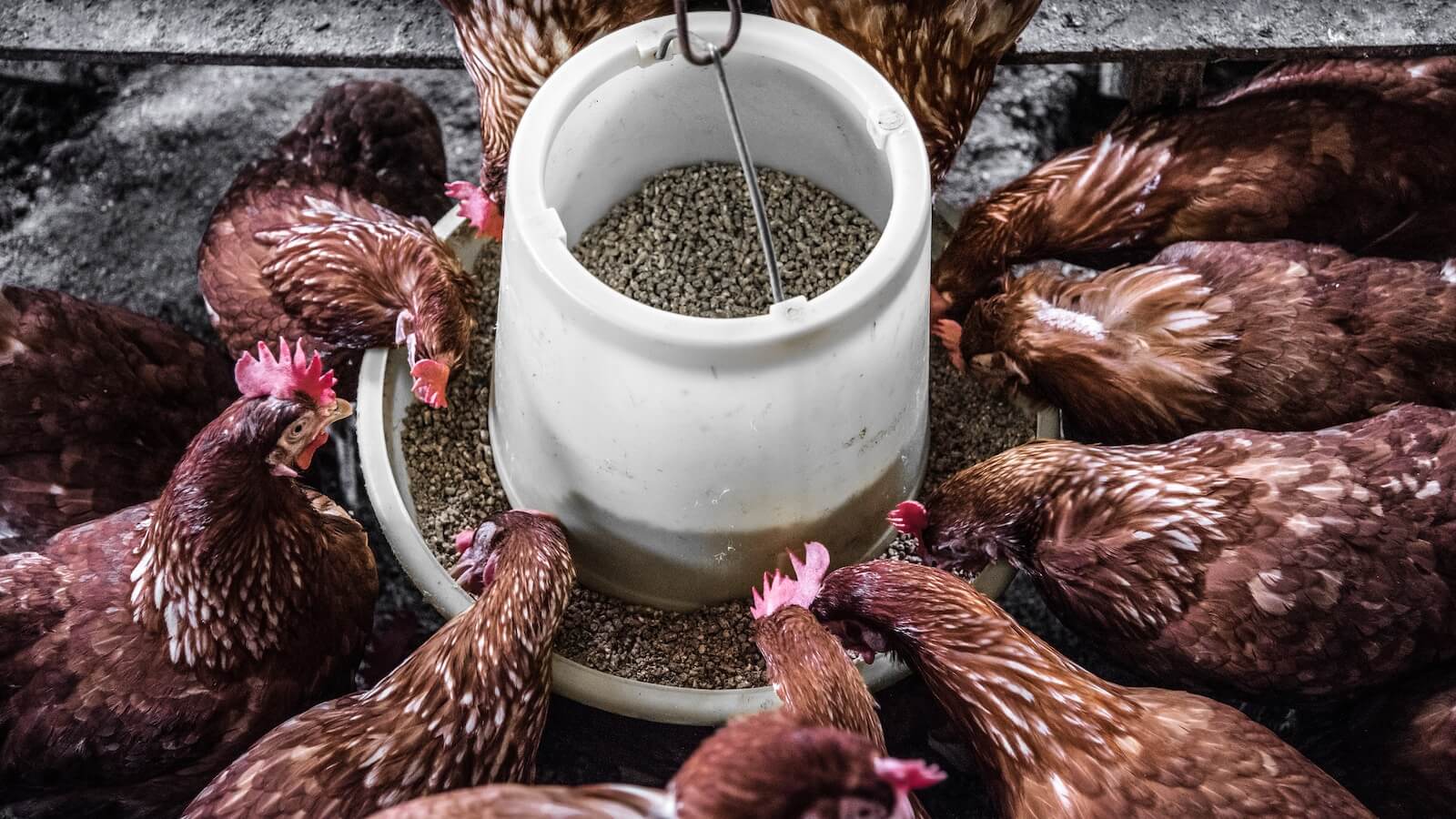Chicken are omnivores and their poultry feed can consist of a wide variety of sources. However, for high performance flock, ensure that their feed contain all necessary food groups, and sufficient nutrients.
Feeding your chicken insufficiently and or low feed quality will result to malnutrition in your flock. Consequently, from a malnourished flock you will have poor productivity and high feed conversion ratio (FCR). In the least, a high FCR means low financial returns or loss for you.
Key ingredients in quality poultry feed
There are 5 key ingredients required in poultry feeds. These include carbohydrates, protein, minerals, vitamins, oils and fats. Notably, these ingredient are essential in meeting your chicken’s needs for health, growth, and productivity.
1. Carbohydrates

Carbohydrates or starch, in general act as energy giving foods. Usually, you can obtain these from various grains. For instance, wheat, millet, sorghum, maize or corn, and barley are some of the most commonly used grains that deliver the carb content to poultry feeds.
Ensure the grain used in producing poultry feed is of high quality. However, note that grains grown or stored poorly can result to feed spoilage, diminished feed quality and food poisoning.
2. Protein
Protein is another core ingredient in poultry feeds. You can obtain protein from a various food sources in order to fulfill the protein requirements in your poultry feed. For example, fish, sunflower, cottonseed, and soybean are the most common. You can obtain and prepare these in different ways.
3. Minerals
Various components are used to provide mineral components to poultry feed. For instance, marine shells, limestone, lysine and dicalcium phosphate, are just a few. Furthermore, marine shells and limestone provide calcium carbonate. Calcium is a key component and helps in the formation of quality egg shells.
Lysine provides an essential amino acid. Additionally, the presence of amino acids in the right ratio helps in the achievement of good health and growth in poultry birds.
Dicalcium phosphate is essentially a mineral phosphate. Phosphorous plays a key role in skeletal development and growth. Moreover, it is also essential in the formation of quality egg shells.
Salt is also an essential mineral for poultry birds. Additionally, salt helps stimulate animal appetite.
4. Vitamins
Some of the key vitamins for poultry feed include Vitamins A, D, and B complex. Vitamin deficiency in poultry feed can result in poor growth.
Vitamin A is essential in protecting birds against infections and cold. It is usually obtained from yellow corn and fish oils. On the other hand, vitamin D helps in bone formation and is usually obtained from fish, and other synthetic products. Vitamin B complex helps with bird growth.
5. Oils and fats
Oils and fats are another essential ingredient in poultry diet. Fats and oils enhance the absorption of fat soluble vitamins. Moreover, they act as energy giving foods and can improve feed quality. Soybean oil, palm oils, groundnut oil, and other vegetable oils are the most commonly used in poultry food.
Poultry feed formulation
One critical aspect of poultry feed making is the ratio by which you mix the ingredients that make up the feed.
Mixing ingredients in improper ratios will results in a low quality feed. In addition, feeding your chicken on low quality feed will result to poor health, stunted growth and low productivity.
Ingredient mixing is such as important aspect of poultry feed. Specific feed formulas are usually made for specific breeds, by flock type, purpose, and age. As a result, if you’re making poultry feed ensure you’re using appropriate formulas.
For single purpose layers birds, there are 3 main feed formulas. These result to 3 feeds types: starter / chick mash, growers mash and layers mash. On the other hand, broiler feeds can be formulated to 2 or 3 feeds types: starter, grower and finisher.
Rules of thumb when feeding your flocks:
- Feeding your flocks high quality feeds
- Ensure that your feeding schedule follows the flock schedule.
- Supplement your flocks with various mineral and vitamin supplements
- Feed supplements should follow the advice of your flock supplier or certified poultry vet
Poultry feed key takeaways
- Poultry birds require high quality feed to achieve good health, growth and high productivity
- Quality poultry feeds contain at least 5 ingredients: carbs, proteins, vitamins, minerals, oils and fats
- Feed ingredients are mixed in special ratios based on highly specialized feed formulas
- Feed formulas are specialized to breed, flock type, purpose, and age
- Always ensure you obtain the best quality feeds for your flocks
- Supplementing a flock with mineral and vitamin supplements may be necessary
- High quality feeds are expensive but will likely result to a low feed conversion ratio (FCR).
- A low FCR means good financial returns for your poultry farm

